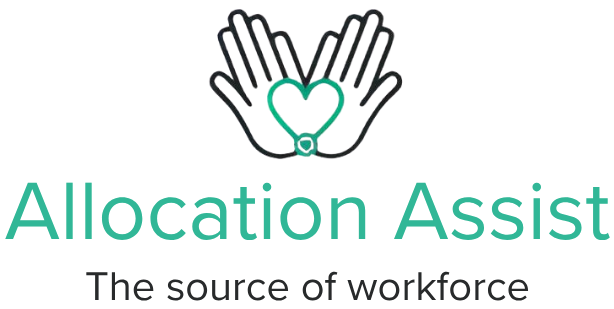You’ll find numerous remote healthcare positions that pay over $50,000 annually, with options fitting diverse skills and backgrounds. Mental health counseling roles offer $49,400-$68,400, while telehealth nursing positions range from $70,000-$100,000. Remote case managers, wellness coaches, and healthcare data analysts can also earn well above $50K. If you’re tech-savvy and passionate about patient care, these growing opportunities can provide both flexibility and financial stability.
Remote Clinical Roles in Mental Health Services

While the demand for mental health services continues to grow, remote clinical roles offer licensed professionals flexible opportunities to provide care from home. You’ll find positions as Licensed Professional Counselors, Clinical Social Workers, and Mental Health Counselors earning between $49,400 to $68,400 annually in Ohio.
To qualify, you’ll need a master’s degree and proper mental health licensing for your state. Remote therapy platforms like Headway and Grow Therapy provide competitive compensation, with contract positions paying $57-$90 per hour. Full-time roles typically offer base salaries of $68,000-$75,000, with potential bonuses pushing earnings to $100,000. While Ohio ranks last nationwide for remote therapist salaries, you can still earn a comfortable living through telehealth services, especially with platforms that provide insurance credentialing and scheduling flexibility.
Virtual Care Coordination and Case Management
You’ll need strong software skills to master electronic care planning platforms that are essential for remote case management roles. Working virtually requires coordinating seamlessly with healthcare teams across multiple locations while maintaining clear documentation and communication channels. Your ability to navigate telehealth systems and collaborate effectively with remote colleagues will directly impact patient care outcomes and your success in virtual care coordination. The position offers competitive compensation with nurse case managers earning an average of $98,869 annually. Following a typical 8-5 schedule, remote case managers begin each day by reviewing their assigned patient cases and coordinating care plans.
Care Planning Software Mastery
As healthcare continues evolving toward virtual delivery models, mastering care planning software has become essential for remote coordinators and case managers. You’ll need proficiency in major EHR systems like Epic, Cerner, or Athenahealth to guarantee accurate documentation and seamless care shifts. With telehealth demand remaining 38 times higher than pre-pandemic levels, mastery of virtual care platforms is crucial.
To excel in telehealth integration, you’ll want to master platforms like Zoom for Health and Doximity Dialer, while developing expertise in case management tools such as Kareo and Allscripts. Population health analytics platforms like Optum help you make data-driven decisions, while patient portals like MyChart enhance engagement and adherence tracking. Entry-level coordinators can expect to earn about $46,000 annually. Working at larger healthcare organizations often provides better compensation packages and advancement opportunities.
These technical skills, combined with relevant certifications like CCM or CHC, can position you for roles paying between $50K-$75K annually, with opportunities to earn more in specialized positions or high-cost regions.
Remote Team Coordination Skills
Remote team coordination demands a unique blend of technical expertise and interpersonal finesse in today’s virtual healthcare landscape. You’ll need to master remote team dynamics while managing care activities across multiple states and platforms. Understanding virtual collaboration strategies is essential as you’ll coordinate with healthcare providers, patients, and support staff through secure messaging systems. Bachelor’s-prepared nurses typically fill these roles, bringing their clinical expertise to virtual care settings.
Virtual coordinators provide significant cost advantages, as practices can save up to 70% on expenses compared to in-person staff. To excel in this role, you’ll need proficiency in EMR platforms (particularly Athena) and HIPAA-compliant telehealth systems. Your experience with chronic care management and obesity treatment workflows will prove valuable as you educate patients and guarantee treatment plan adherence. Working with a Monday-Friday schedule, this position offers flexibility while maintaining consistent availability for patient care. The position typically offers $45,000-$65,000 annually, with benefits like PTO and 401(k) matching. As healthcare continues its digital transformation, your ability to navigate virtual care coordination will become increasingly valuable.
Telehealth Nursing Opportunities

While traditional nursing roles remain prevalent, telehealth nursing opportunities have emerged as a lucrative career path with competitive salaries ranging from $70,000 to over $100,000 annually. You’ll find that telehealth benefits extend beyond the financial domain, offering you the nursing flexibility to work from home while maintaining a better work-life balance. Entry-level professionals typically start at $53,500 annually. Based on recent data, hourly rates average $36.82 for telehealth nurses. Virtual care delivery requires strong communication and technology proficiency to effectively assess and treat patients remotely.
Your earning potential increases considerably with advanced degrees and certifications. BSN-prepared nurses earn approximately $17,000 more than ADN graduates, while specialized roles like Nurse Practitioners can command salaries exceeding $135,000.
- Remote Case Management positions offer competitive salaries between $80,000-$110,000
- Telephone Triage Nursing provides earnings from $75,000-$95,000
- Legal Nurse Consulting roles typically range from $75,000-$100,000
Consider pursuing additional certifications and advanced degrees to maximize your telehealth career opportunities and earning potential.
Digital Health Education and Wellness Coaching
Today’s digital landscape has transformed health education and wellness coaching into viable work-from-home careers, with certified coaches earning between $50,000 to $80,000 annually. As digital coaching trends continue to evolve, you’ll find opportunities to specialize in areas like mental health, lifestyle changes, and stress management.
The field is experiencing rapid expansion with 16,000 job openings projected annually for health coaches. Recent data shows that remote practice opportunities have expanded significantly due to telemedicine advances. To maximize your earning potential, you’ll want to obtain wellness coaching certifications, such as becoming a Certified Health Coach (CHC). Remote positions often offer flexible schedules and the ability to serve clients through virtual platforms, shared journals, and live coaching sessions. You can work independently or partner with established wellness platforms that handle client acquisition and administrative tasks. The industry’s growth to $7 billion indicates strong demand, making this an attractive career path for those passionate about helping others achieve their health goals.
Remote Medical Billing and Coding Positions

Medical billing and coding has emerged as one of the most accessible work-from-home healthcare careers, with over 635 positions currently offering salaries above $60,000. You’ll find entry-level positions starting at $30,000-$40,000, while experienced professionals can earn upwards of $60,000 annually. To maximize your earning potential, you’ll want to pursue remote coding certifications from AAPC or AHIMA. The field shows strong growth potential with a projected 9% job growth through 2033. Professionals with three AAPC certifications can earn an average of $84,414 annually.
- Gain proficiency in medical billing software, CPT/ICD-10 coding, and medical terminology through 16-52 week training programs
- Start with average hourly rates of $21.22, advancing to $24.16 with experience and certifications
- Consider specializing in high-paying roles like Medical Coding Reviewer or Clinical Documentation Improvement, which can pay $42,752 above average
Working remotely eliminates commuting costs while maintaining competitive pay, making this career path both flexible and financially rewarding.
Virtual Patient Advocacy and Support Services
Patient advocacy services have transformed into a thriving remote career opportunity, with virtual positions now offering salaries up to $99,000 annually. You’ll guide patients through complex healthcare system navigation, manage insurance claims, and coordinate with providers all from your home office.
To succeed, you’ll need strong patient advocacy techniques, including clear communication skills and the ability to handle stressful situations with empathy. While no formal license is required, certifications like the Board Certified Patient Advocate (BCPA) credential can boost your career prospects. A background in nursing, social work, or public health is also valuable. Key duties include helping patients with healthcare visit support by preparing them for appointments and ensuring all their questions are addressed.
You can work full-time for healthcare organizations, insurance companies, or establish yourself as an independent consultant, using virtual platforms to connect with clients and manage cases effectively.
Telemedicine Technology Support Careers
To excel in telemedicine technology support, you’ll need certifications in healthcare IT systems and HIPAA compliance, along with hands-on experience troubleshooting virtual care platforms. When providing remote technical assistance, you must follow structured protocols for diagnosing connectivity issues, guiding users through platform navigation, and maintaining detailed incident logs. Your role in safeguarding telehealth platforms requires implementing robust security measures, including encrypted communications, multi-factor authentication, and continuous monitoring of potential vulnerabilities.
Technical Support Training Requirements
Technical support professionals in telemedicine need extensive training across multiple competency areas to effectively manage today’s sophisticated healthcare platforms. Your technical competency development will focus on mastering secure internet protocols, video platform management, and integration of medical devices. Through various training delivery formats like CPD courses and hands-on workshops, you’ll gain practical experience in maintaining telehealth systems while ensuring regulatory compliance.
- Complete specialized certifications in HIPAA-compliant systems and cross-platform compatibility to enhance your career prospects
- Learn to troubleshoot critical equipment like cameras, microphones, and diagnostic tools through telesimulation environments
- Develop expertise in emerging technologies, including AI-driven analytics and 5G optimization for high-definition telehealth sessions
These skills will position you for advancement in specialized areas like TeleICU support or telestroke systems management.
Remote Troubleshooting Best Practices
When providing remote technical support for telehealth platforms, you’ll need to master a structured approach to troubleshooting that guarantees both efficiency and compliance. Your remote troubleshooting strategy should include implementing tiered support systems and clear escalation protocols for urgent issues.
You’ll use specialized tools like TeamViewer and Splashtop to deliver technical solutions in real-time, while leveraging AI chatbots to handle basic inquiries. It’s crucial to develop platform-specific diagnostic checklists and standardized workflows for various devices. You’ll need to monitor performance metrics, conduct regular bandwidth tests, and analyze call quality data to identify systemic issues. Additionally, you must stay current with multi-state licensing requirements and technical regulations to guarantee compliant support across different jurisdictions.
Telehealth Platform Security Protocols
As a telehealth platform security specialist, you’ll be responsible for implementing and maintaining robust security protocols that protect sensitive patient data while guaranteeing seamless healthcare delivery. Your role focuses on safeguarding telehealth security through data encryption, access controls, and continuous monitoring of potential vulnerabilities. You’ll work with healthcare providers to establish secure communication channels and enforce strict authentication measures that protect patient privacy.
- Configure end-to-end encryption for video consultations and guarantee proper encryption of stored medical records
- Implement multi-factor authentication and role-based access controls to prevent unauthorized data access
- Monitor security systems, conduct regular audits, and develop incident response plans for potential breaches
The position requires expertise in HIPAA compliance, vendor management, and the ability to balance security measures with user-friendly healthcare delivery systems.
Remote Healthcare Data Analysis Jobs
Remote healthcare data analysis jobs represent a growing sector of work-from-home opportunities, with over 437,000 positions currently available nationwide. You’ll find entry-level salaries starting at $45,400, with experienced analysts earning up to $90,000 annually. Data analytics trends show consistent growth in this field, driven by healthcare’s increasing reliance on data-driven decisions.
Remote job benefits include flexible work arrangements and standardized pay rates that aren’t limited by geography. You’ll need technical skills in SQL and healthcare software, plus a bachelor’s degree in a relevant field. Certifications like CHDA or RHIA can boost your earning potential. The role typically includes extensive benefits packages, and you’ll have opportunities to advance through specialization in areas like risk management or clinical research.
Frequently Asked Questions
What Certifications or Licenses Are Required for Remote Psychiatric Nurse Practitioner Positions?
To work as a remote psychiatric nurse practitioner, you’ll need your PMHNP-BC certification from ANCC and an active RN license. State licensing boards require APRN licensure for prescribing authority, and you’ll need a DEA registration for controlled substances. Don’t forget that your RN license must match your patients’ locations for remote practice. Optional certifications like CARN-AP for addiction care can enhance your credentials, but they’re not mandatory for most positions.
How Do Remote Healthcare Employers Verify Patient Privacy and HIPAA Compliance?
Remote healthcare employers protect patient confidentiality through multiple layers of security measures. You’ll need to use HIPAA-compliant verification methods like two-factor authentication, secure patient portals, and encrypted communication platforms. You’ll also encounter strict telehealth security measures including VPN requirements, role-based access controls, and automatic session timeouts. Your employer will track all PHI interactions and require regular HIPAA training to guarantee you’re maintaining patient privacy standards.
What Type of Home Office Equipment Is Typically Required for Telehealth Jobs?
You’ll need essential telehealth technology to create an effective remote workspace. Start with a reliable high-speed internet connection (50-100 Mbps) and a HIPAA-compliant computer system. You must have an HD webcam, quality microphone, and noise-canceling headphones for clear patient communication. Don’t forget to set up a private, well-lit area with ergonomic furniture. Consider dual monitors to manage patient records efficiently, and make certain you’ve got a secure VPN connection.
Are Remote Healthcare Positions Generally Full-Time or Contract-Based Opportunities?
You’ll find both full-time and contract-based positions in remote healthcare, with each offering distinct advantages. If you’re seeking job security, full-time roles like medical coding and compliance specialist positions provide stable benefits and predictable schedules. However, if you value remote work flexibility, contract positions are increasingly popular, offering higher hourly rates and diverse project experiences. You can also explore hybrid opportunities through consulting firms that blend stability with varied assignments.
How Often Do Remote Healthcare Workers Need to Visit Physical Office Locations?
Your remote work frequency in healthcare typically depends on your role and employer requirements. Most remote healthcare workers need to visit physical offices 1-2 times per month for team meetings, training, or essential in-person tasks. If you’re in clinical roles, you’ll likely need more frequent office visits, around 2-3 times per week. Administrative positions often have more flexibility, with some only requiring quarterly in-person visits for performance reviews or departmental planning.








